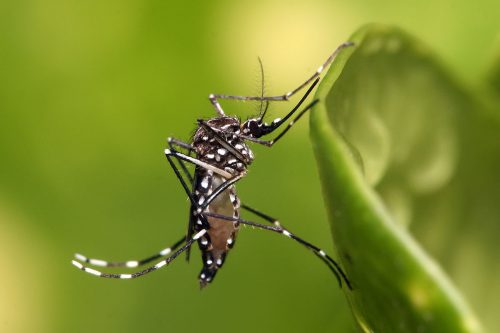In recent years, news has covered the emergence and spread of mosquito-transmitted viruses including Zika, chikungunya, and dengue. Scientists and public health officials work to understand, predict, and ultimately prevent outbreaks. A new Yale study, conducted as a collaboration between the labs of Paul Turner and Jeffrey Powell in the department of Ecology and Evolutionary Biology, investigated the effect of temperature and mosquito genotype on the infection rates of Aedes aegypti mosquitos by a type of dengue virus (DENV-2).
Knowing that temperature affects mosquito susceptibility to infection, the researchers sought to determine how varying mosquito and viral genotypes correlate with infection rates at different temperatures. The researchers studied two populations of the A. aegypti mosquito from two locations in Vietnam—Hanoi and Ho Chi Minh City, with average temperatures of 230C and 280C respectively—and infected them with two isolates of DENV-2 originating from the same locations.
“There is a lot of variation in temperature in these regions,” said Dr. Andrea Gloria-Soria, a member of Dr. Turner’s lab and first author of the study. “We hypothesized that mosquitos adapt to the temperature where they live, affecting virus transmission.” After a 10-day incubation at temperatures of 250C, 270C, or 320C, the researchers quantified the number of mosquitos infected with dengue virus. Their findings showed that different mosquito populations respond differently to temperature, with mosquitos from warmer climates being more susceptible to DENV-2 infection at colder temperatures.
Local temperatures may influence the risk of dengue virus outbreaks, and introduction of mosquitos adapted to warmer climates to cooler geographic areas may increase infection rates. “Many people in cooler regions don’t think about mosquito viruses as a problem, but if mosquitos are introduced at the right moment, they can survive and transmit the virus, presenting a greater risk for outbreaks,” said Dr. Gloria-Soria.

